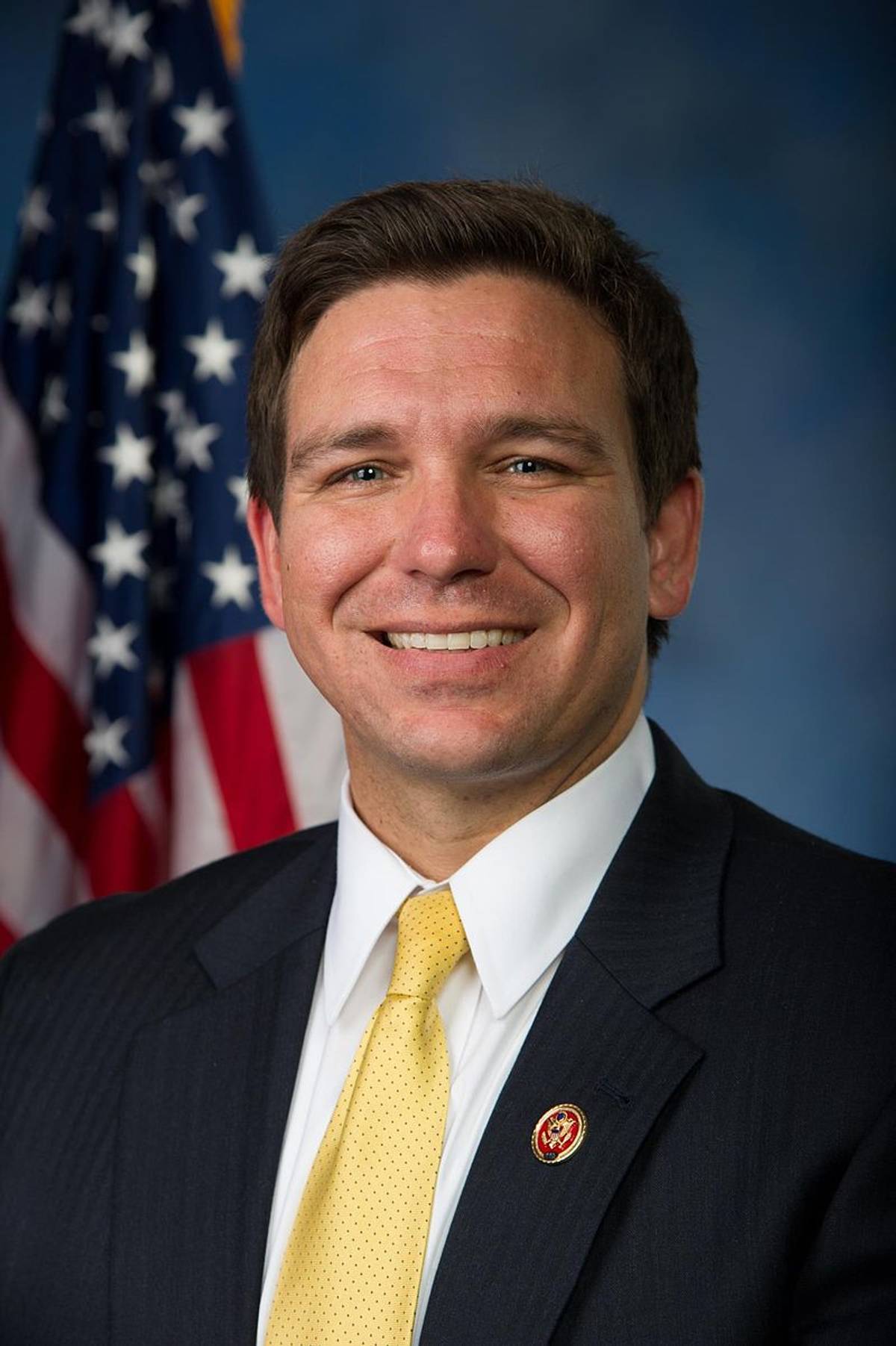According to Congressman Ron DeSantis (R-Florida)—the chairman of the House Subcommittee on National Security who led a two-day delegation to Israel over the weekend—President Trump is likely to announce in June that the U.S. Embassy in Israel will relocate to Jerusalem from Tel Aviv. DeSantis said he expected the move will be announced within months and stressed that it will signal to the world that the U.S. stands by its allies.
DeSantis, who was the only Congressman on the trip, told reporters at press conference at Jerusalem’s King David Hotel that the first benefit of moving the embassy to Jerusalem would be “truth,” as “there is no other country in the world where we don’t locate the embassy in that country’s chosen capital.”
In 1995, Congress mandated with the Jerusalem Embassy Act that the embassy be moved to Jerusalem but allowed the president to postpone implementation at six-month intervals by signing a waiver. (Clinton, Bush, and Obama all signed the waiver.) DeSantis said he expects President Trump to allow that waiver to lapse when it next comes up for renewal at the end of May, noting that the date coincides with Israel’s celebration of the 50th anniversary of Jerusalem’s reunification in 1967.
During his trip, DeSantis also “met with Prime Minister Benjamin Netanyahu, Deputy Foreign Minister Tzipi Hotovely and several Knesset members,” reported The Times of Israel, including a sit-down with Jerusalem Mayor Nir Barkat.
Ron DeSantis. (Wikimedia)
Reportedly, Trump had originally planned to move the embassy to Jerusalem as the “first move” of his presidency. “The president has been a man of his word,” said DeSantis, who argued that Trump is in a better place to authorize the move now because his pick for Secretary of State (and soon, his choice for Israeli Ambassador) is in place. Strategically, he argued that it was important that the president, “having made the pledge [to move the embassy], that he follow through with it,” adding that President Obama’s failure to enforce his “red line” on Syria had had serious consequences for his credibility as president.
Slamming the Obama Administration’s decision to abstain on UN Security Resolution 2334, DeSantis further stressed the move would show “America is standing foursquare behind our allies here in Israel.” Noting that most members of Congress are “supportive of Israel” he argued that the U.S. should not “browbeat” Israel into making concessions that are not in its interests but instead should express clear support.
Responding to concerns that embassy move might imperil U.S. relations in the Arab world, DeSantis stressed, “When you’re dealing with Arab world, it’s important to project decisiveness and strength.” He further argued that Arab states would in fact “respect [President Trump] more” for following through on his promise because they would see a “strong and decisive leader.”
Adding that the Gulf countries’ “main concern is not Jerusalem, but Iran and other security threats,” he predicted the relocation would not be “that big a deal.” (A spokesperson for Fatah feels otherwise.) He added that the move could not endanger prospects for a peace process towards a two-state solution because those are “dead as a doornail” now anyway. Declining to predict whether the move could provoke an outbreak of violence, as some fear, Congressman DeSantis said: “I do think if policy is driven by fact people could react negatively, that’s probably not going to lead you to do very good policy in the long run.”
The Congressman said the “most ready” location for relocating the embassy is the U.S. Consular Section in Talpiyot because it’s already “very well-guarded.” That site straddles the Green Line, between pre-1967 Israel and the previous no-man’s land that separated it from Jordan. Congress, he said, would not insist that the embassy must be in West Jerusalem, adding that the governing body recognized a united Jerusalem as Israel’s capital in 1995.
Also under consideration are the Diplomat Hotel, inside that former no-man’s land, and “partial leased land” in Jerusalem, presumed to refer to an empty plot on Hebron Road. The congressional delegation is also considering using the U.S. Consulate in West Jerusalem, which serves as the U.S. diplomatic mission to the Palestinian Authority. DeSantis told Tablet that even on the House Foreign Affairs Committee, “there is not a lot of understanding” that the Consulate’s purpose is to represent the U.S. to the Palestinian government.
Looking forward, DeSantis predicted that the relocation of the U.S. Embassy to Jerusalem could prompt other states to move their own embassies. “A lot of those other countries don’t want to go first,” he said, “but if America goes first, it will not be the last. Other countries will follow suit and maintain their embassies in Jerusalem.”


